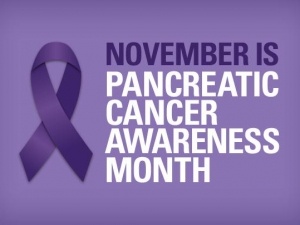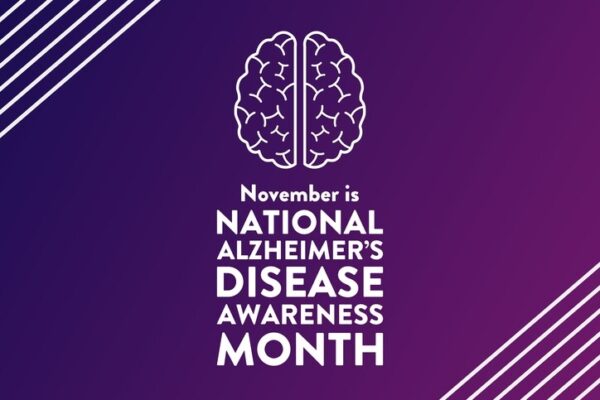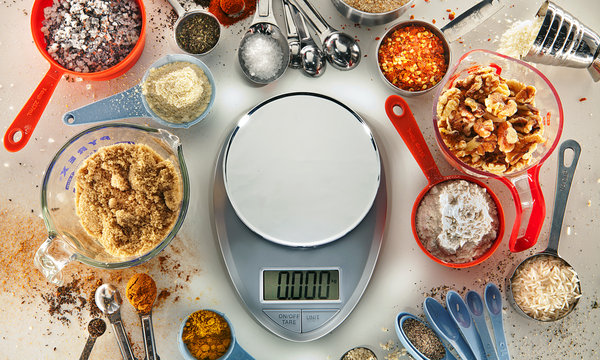
Introduction
The holiday season is often synonymous with joy and celebration, but it can also bring stress, fatigue, and emotional strain. Whether it’s managing expectations or juggling responsibilities, staying mentally centered is crucial. This blog explores how mindfulness and simple practices can support your mental well-being during this busy season.
Why the Holidays Can Be Stressful
The holidays are full of activities, from gift shopping to family gatherings, which can be overwhelming. Financial pressures, travel plans, and high expectations can add to the stress, affecting both your mental and physical health.
Mindfulness Techniques for Holiday Stress
- Practice Gratitude: Take time each day to reflect on things you’re thankful for.
- Breathe Deeply: Engage in breathing exercises to calm your mind and reduce stress.
- Set Boundaries: Say no to activities that overextend your energy or resources.
- Stay Active: Exercise is a powerful tool for stress relief and mental clarity.
Closing Thoughts
The holidays are a time to reconnect with what truly matters. Prioritizing your mental health ensures you can fully enjoy the season and start the new year refreshed.
Call to Action: Optimize your mind and body with the Optimized Humans App. Sign up today using code NEWYEARFIT25 for exclusive holiday savings.
Introduction
The holiday season is a time for celebration, family, and often, overindulgence. While it’s a joyous time of year, it can also be hard on your heart. Stress, rich foods, and disrupted routines can all take a toll on cardiovascular health. This blog explores how you can enjoy the festivities while keeping your heart healthy.
Why Heart Health Matters During the Holidays
The holiday season is a period when heart-related health problems tend to spike. The combination of colder weather, increased stress, and dietary indulgences can lead to elevated blood pressure and other heart-related concerns. Keeping your cardiovascular system in check is essential to ensure you enter the new year strong.
Tips for a Healthy Heart This Holiday Season
- Stay Active: Incorporate exercise into your holiday schedule, such as brisk walks or short home workouts.
- Mind Your Plate: Balance indulgent meals with plenty of vegetables, lean proteins, and whole grains.
- Manage Stress: Take time for relaxation techniques like meditation or yoga to lower stress levels.
- Limit Alcohol: Enjoy in moderation to prevent spikes in blood pressure.
Closing Thoughts
Your heart works hard for you every day. This holiday season, give it the care and attention it deserves. With small, intentional choices, you can keep your cardiovascular system strong while enjoying the festivities.
NEW YEAR RESOLUTION: Get ready for a heart-healthy new year with the Optimized Humans App! Sign up now and use code NEWYEARFIT25 for a special discount this holiday season.
November is National Alzheimer’s Disease Awareness Month, a time to focus on one of the most prevalent and devastating conditions affecting millions of people worldwide. Alzheimer’s disease is a progressive neurological disorder that impairs memory, thinking, and behavior. Raising awareness about this condition is crucial in helping people understand its effects, prevention strategies, and the steps we can take to support brain health throughout life.
In this post, we’ll explore what Alzheimer’s disease is, its risk factors, the importance of early detection, how lifestyle choices like exercise and nutrition can help lower the risk, and some key statistics to help raise awareness.
What is Alzheimer’s Disease?
Alzheimer’s disease is the most common form of dementia, accounting for about 60-80% of dementia cases. It’s a degenerative condition that primarily affects memory, thinking skills, and behavior. As the disease progresses, it interferes with a person’s ability to carry out even the simplest tasks, eventually leading to complete dependency on others for care. Alzheimer’s is a fatal condition with no cure, but early detection and proper care can slow its progression and improve quality of life.
The disease typically affects people over the age of 65, although early-onset Alzheimer’s can appear in people as young as 40 or 50. It’s characterized by the buildup of amyloid plaques and tau tangles in the brain, leading to the loss of connections between neurons, the brain’s cells. Over time, this damage results in cognitive decline and the shrinking of brain tissue.
Risk Factors and Early Signs
Alzheimer’s disease develops due to a combination of genetic, environmental, and lifestyle factors. Here are some key risk factors:
- Age: The greatest known risk factor for Alzheimer’s is age, with the majority of cases occurring in individuals over 65.
- Family History: Those with a parent, sibling, or child with Alzheimer’s are more likely to develop the disease.
- Genetics: Certain genes, such as the APOE-e4 gene, are associated with a higher risk of developing Alzheimer’s.
- Chronic Conditions: Conditions like heart disease, diabetes, and high blood pressure can increase the risk of Alzheimer’s by affecting the health of blood vessels that nourish the brain.
- Lifestyle Factors: Lack of physical activity, poor diet, and chronic stress have all been linked to an increased risk of cognitive decline and Alzheimer’s.
Early signs of Alzheimer’s often include memory loss, difficulty completing familiar tasks, trouble with language, and confusion about time or place. It’s important to recognize these signs early and seek medical evaluation, as early intervention can make a significant difference in managing the condition.
How a Healthy Lifestyle Can Help Lower the Risk
While there is no definitive way to prevent Alzheimer’s, research suggests that certain lifestyle factors may reduce the risk or delay the onset of the disease. Maintaining a healthy brain is closely tied to keeping the heart, body, and mind in good shape. Here are some ways to support brain health and lower your risk of Alzheimer’s:
- Regular Exercise: Physical activity increases blood flow to the brain and supports the growth of new brain cells. It also reduces the risk of chronic diseases that contribute to Alzheimer’s, such as heart disease and diabetes. Studies have shown that regular aerobic exercise, like walking, swimming, or cycling, can help improve memory and cognitive function.
- Healthy Diet: A brain-healthy diet is rich in fruits, vegetables, whole grains, and healthy fats. The Mediterranean and DASH diets are particularly beneficial, emphasizing foods like leafy greens, berries, nuts, fish, and olive oil. These diets have been shown to improve cognitive function and reduce the risk of Alzheimer’s by providing essential nutrients that protect brain cells.
- Mental Stimulation: Keeping the brain active is crucial for cognitive health. Engaging in mentally stimulating activities, such as puzzles, reading, learning new skills, or playing strategy games, can strengthen brain function and help build a cognitive reserve that may delay the onset of Alzheimer’s symptoms.
- Social Engagement: Maintaining social connections is important for brain health. Isolation and loneliness can increase the risk of cognitive decline, while staying socially active with friends, family, and community activities can improve mental and emotional well-being.
- Adequate Sleep: Poor sleep, especially chronic sleep deprivation, has been linked to an increased risk of Alzheimer’s. Sleep is essential for clearing toxins from the brain that accumulate during the day, including amyloid, a protein linked to Alzheimer’s.
- Stress Management: Chronic stress can accelerate cognitive decline. Techniques such as mindfulness, meditation, yoga, and relaxation exercises can help manage stress and promote a healthy mind.
Alzheimer’s Disease Awareness: Key Statistics
The impact of Alzheimer’s disease is widespread, affecting not only those diagnosed but also their families and caregivers. Here are some key statistics to raise awareness about Alzheimer’s:
- According to the Alzheimer’s Association, more than 6 million Americans are living with Alzheimer’s disease, and this number is expected to reach nearly 13 million by 2050.
- One in three seniors dies with Alzheimer’s or another form of dementia, making it a leading cause of death among older adults.
- Women are disproportionately affected, making up nearly two-thirds of Americans with Alzheimer’s. Women are also more likely to be caregivers for someone with the disease.
- Alzheimer’s and other dementias will cost the U.S. $355 billion in 2021, and this figure could rise to over $1.1 trillion by 2050 as the population ages.
- African Americans and Hispanics are at a higher risk of Alzheimer’s, with African Americans being twice as likely and Hispanics one and a half times as likely to develop the disease compared to non-Hispanic whites.
These statistics highlight the urgent need for increased awareness, research funding, and support for those affected by Alzheimer’s.
Final Thoughts: Raising Awareness and Taking Action
National Alzheimer’s Disease Awareness Month is an opportunity for all of us to learn more about this devastating condition, support research, and encourage healthier lifestyle choices that can lower the risk of Alzheimer’s. By staying active, eating well, and keeping your mind and heart healthy, you can reduce your risk of cognitive decline and take proactive steps toward preserving your brain health.
While there’s no cure for Alzheimer’s yet, advances in research and a greater understanding of the disease give hope for the future. As we raise awareness this month, remember that small lifestyle changes can make a big difference.
Looking for guidance on how to stay physically and mentally healthy? Join Optimized Humans today to gain access to personalized workout plans, nutrition advice, and ongoing support for your health journey. Use the code ALZHEIMERSAWARE for an exclusive discount on your subscription. Let us help you optimize your body and mind for a healthier, more vibrant life.
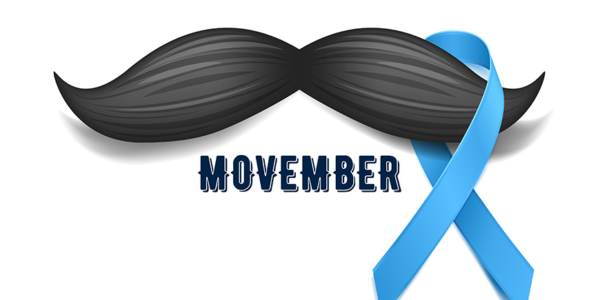
Movember: Raising Awareness for Health and the Importance of Fitness
Movember is more than just a month of growing mustaches; it’s a movement dedicated to raising awareness about men’s health, particularly in areas like prostate cancer, testicular cancer, and mental health. It’s a time when men are encouraged to take control of their health and well-being, which includes not only monitoring their physical health but also maintaining an active lifestyle. In this post, we’ll dive into the origins of Movember, why exercise is vital to your health, some compelling statistics on fitness and movement, and a 3-day workout plan to get you moving.
The Origins of Movember
Movember started in 2003 when two friends in Melbourne, Australia, joked about bringing the mustache back into style. What began as a light-hearted challenge quickly turned into a serious cause. Inspired by a friend’s mother who was fundraising for breast cancer, they decided to give the mustache growing challenge a purpose: raising awareness for men’s health, particularly prostate cancer.
Today, Movember has grown into a global movement with millions of participants from around the world. By growing mustaches and participating in fundraising activities, men (and women) help bring attention to critical health issues that men face, such as testicular cancer, mental health struggles, and physical inactivity. It’s a chance for men to start conversations about health, undergo checkups, and encourage each other to lead healthier lives.
Why Exercise is Vital to Your Health
Exercise is a key factor in preventing many of the health issues that Movember aims to raise awareness about. Regular physical activity helps maintain a healthy weight, improve cardiovascular health, reduce the risk of chronic diseases, and improve mental health.
Here are some specific ways exercise positively impacts men’s health:
- Reduces the Risk of Prostate and Testicular Cancer: Studies have shown that regular exercise can help lower the risk of prostate cancer and improve outcomes for those diagnosed. Exercise also improves testicular health by promoting blood flow and reducing stress levels.
- Boosts Mental Health: Physical activity is a natural antidepressant. Exercise releases endorphins that improve mood, reduce anxiety, and help manage stress.
- Improves Cardiovascular Health: Cardiovascular diseases are among the leading causes of death for men. Exercise strengthens the heart, improves blood circulation, and lowers the risk of heart disease.
Statistics on Fitness and Movement
The modern lifestyle often leads to a sedentary way of living, which has contributed to rising rates of chronic diseases. Here are some important statistics to highlight the importance of staying active:
- According to the World Health Organization (WHO), more than 23% of adults are not active enough. This sedentary behavior increases the risk of heart disease, obesity, diabetes, and certain cancers.
- Physical inactivity is the fourth leading risk factor for global mortality, responsible for about 3.2 million deaths annually, according to WHO.
- The American Heart Association (AHA) recommends that adults engage in at least 150 minutes of moderate-intensity aerobic exercise, or 75 minutes of vigorous exercise, per week to maintain good health.
- Men who are physically active are up to 50% less likely to develop serious chronic conditions, such as heart disease, compared to inactive men.
By incorporating regular physical activity into your routine, you can drastically improve your health, reduce your risk of chronic illness, and improve mental well-being.
3-Day Workout Program to Get You Moving
Here’s a simple but effective 3-day workout program designed to get you moving, boost your strength, and improve your cardiovascular health. This program requires minimal equipment and can be done at home or in the gym. Remember to warm up before each session and cool down afterward with some light stretching.
| Day | Exercise | Sets | Reps | Rest |
|---|---|---|---|---|
| Day 1: Full-Body Strength | ||||
| Squats | 3 | 12 | 60 sec | 45 sec |
| Push-ups | 3 | 10 | 60 sec | 30 sec |
| Dumbbell Rows (or Resistance Band Rows) | 3 | 12 | 60 sec | 30 sec |
| Plank | 3 | 30 sec | 60 sec | 15 sec |
| Lunges | 3 | 12 per leg | 60 sec | 30 sec |
| Day 2: Cardio & Core | ||||
| Jumping Jacks | 3 | 1 min | 30 sec | 20 sec |
| Mountain Climbers | 3 | 30 sec | 30 sec | 20 sec |
| Bicycle Crunches | 3 | 15 per side | 30 sec | 20 sec |
| Burpees | 3 | 10 | 60 sec | 20 sec |
| Russian Twists | 3 | 20 | 30 sec | 20 sec |
| Day 3: Lower Body & Stretching | ||||
| Glute Bridges | 3 | 15 | 60 sec | 30 sec |
| Wall Sit | 3 | 45 sec | 60 sec | 30 sec |
| Calf Raises | 3 | 15 | 60 sec | 30 sec |
| Forward Fold Stretch | 3 | 30 sec | – | 15 sec |
| Hip Flexor Stretch | 3 | 30 sec per side | – | 15 sec |
This simple program is designed to give you a mix of strength, cardiovascular, and flexibility training. The combination of exercises targets all major muscle groups and keeps your body moving, whether you’re just getting started or looking to maintain a fitness routine during Movember.
Final Thoughts: Get Active This Movember
Movember is a reminder that men’s health matters. While growing a mustache is a fun way to raise awareness, taking steps to improve your health is equally important. Incorporating exercise into your routine can help you lower your risk for serious health conditions, improve your mental well-being, and set you up for a healthier life.
So, why not use Movember as a time to not only raise awareness but also take charge of your own health? Whether you’re committing to regular workouts, going for daily walks, or making other healthy lifestyle changes, every step counts.
Ready to optimize your health even further? Sign up for Optimized Humans and gain access to personalized workout plans, meal recommendations, and a supportive fitness community. Use the code MOVEMBERFIT for a special discount when you subscribe! Join us this Movember and take the first step towards a healthier, more active you. https://www.trainerize.me/profile/siiib/Optimized.Humans/
What is Sober October? Origins, Health Benefits, and Why You Should Join In
Sober October is an annual movement encouraging people to take a break from alcohol for 31 days during the month of October. This wellness challenge offers a chance to reset your body, mind, and habits, providing a break from alcohol’s effects and allowing for a clearer perspective on your relationship with drinking. But where did this movement come from, and what are the benefits of participating?
Origins of Sober October
Sober October originated in the UK in 2014, led by the charity Macmillan Cancer Support. Initially, it was a fundraising campaign encouraging participants to give up alcohol for a month to raise money for cancer research. It quickly gained popularity beyond its charitable origins, as people realized the personal benefits of abstaining from alcohol for a period, including improved physical and mental health.
The Health Benefits of Sober October
Taking a break from alcohol, even for a short time, can have remarkable effects on your body and mind. Here are a few benefits you can expect from participating in Sober October:
- Improved Sleep: Alcohol can disrupt sleep patterns, causing you to wake up feeling groggy. Going alcohol-free allows your body to restore its natural sleep cycle, leading to more restful nights.
- Better Skin: Alcohol dehydrates your body, and your skin often shows the effects. Without alcohol, many people notice a clearer, more hydrated complexion.
- Boosted Mental Clarity: Alcohol can fog your thinking and slow your cognitive functions. When you cut it out, you may find it easier to focus, think clearly, and be more productive.
- Weight Management: Alcohol is often high in empty calories. By cutting it out, you may experience weight loss or better control over your calorie intake.
- Enhanced Mood: Alcohol can act as a depressant, lowering your mood over time. People often report feeling more emotionally stable and positive during and after a month without drinking.
Participating in Sober October offers a valuable opportunity to reassess your habits and make positive changes in your life, setting the stage for long-term health and wellness.
Ready to take your health to the next level? With Optimized Humans, you can access personalized workout and nutrition plans, support for your wellness goals, and a community to keep you motivated. Sign up today and receive a special discount on your membership by mentioning this blog! Start your Sober October challenge with us, and take the first step towards a fitter, healthier, and more optimized you.
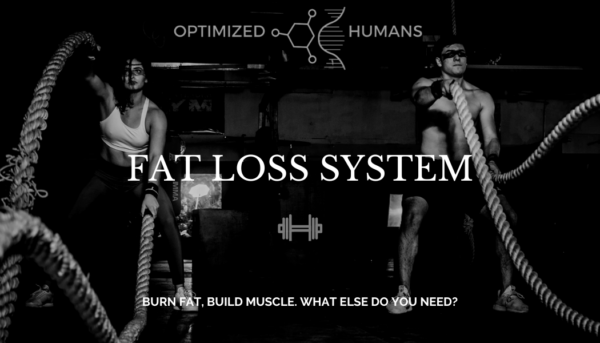

Let’s face it embarking on a “diet” (a word I hate using because of the stigma, I prefer clean or healthy meal plan/planning) journey often means paying close attention to macronutrients—proteins, fats, and carbohydrates—that fuel our bodies. Even seasoned dieters can make common mistakes when it comes to balancing these essential nutrients. Let’s dive into spoon and fork into the most frequent macro mistakes and how to avoid them.
1. Overemphasizing Protein Intake
The Mistake: While protein is crucial for muscle repair and growth, overemphasis on it can lead to neglecting other essential nutrients. Many experienced dieters fall into the trap of consuming too much protein compared to a healthy balance, believing it will lead to greater muscle gain or fat loss.
The Fix: According to the Dietary Guidelines for Americans, the recommended dietary allowance (RDA) for protein is 46 grams per day for women and 56 grams per day for men. Instead of focusing solely on protein, ensure you’re getting a balanced intake of all macronutrients. A good rule of thumb is to distribute your daily calorie intake to about 10-35% protein, 45-65% carbohydrates, and 20-35% fats.
***Personal Tip (1 gram per pound of total bodyweight, or 1 gram per pound of goal bodyweight)
2. Neglecting Carbohydrates
The Mistake: Carbohydrates often get a bad rap in diet culture. Many dieters, even experienced ones, may cut carbs drastically, thinking it will speed up weight loss. However, this can lead to energy slumps and nutrient deficiencies.
The Fix: Carbohydrates are the body’s primary energy source. The Institute of Medicine recommends that 45-65% of your daily calories come from carbohydrates. Focus on consuming complex carbohydrates such as whole grains, vegetables, and fruits, which provide sustained energy and essential nutrients.
3. Ignoring the Importance of Fats
The Mistake: In an effort to reduce calorie intake, some dieters cut out fats almost entirely. This can be detrimental, as fats are essential for hormone production, brain health, and the absorption of fat-soluble vitamins (A, D, E, and K).
The Fix: Healthy fats should comprise 20-35% of your daily calorie intake. Prioritize sources of unsaturated fats such as avocados, nuts, seeds, and olive oil. These not only provide energy but also support overall health and well-being.
4. Misjudging Portion Sizes
The Mistake: Even when focusing on macros, portion control can be a stumbling block. Overestimating portion sizes can lead to consuming more calories than intended, while underestimating can result in nutrient deficiencies.
The Fix: Use measuring tools like cups, spoons, and food scales to accurately gauge portion sizes. Familiarize yourself with visual cues for portion sizes, such as understanding that a serving of protein is roughly the size of a deck of cards.
5. Inadequate Fiber Intake
The Mistake: Fiber often gets overlooked in the quest to balance macros. However, a diet lacking in fiber can lead to digestive issues and suboptimal blood sugar control.
The Fix: The Academy of Nutrition and Dietetics recommends 25 grams of fiber per day for women and 38 grams for men. Incorporate a variety of fiber-rich foods into your diet, such as vegetables, fruits, whole grains, and legumes, to support digestive health and satiety.
6. Failing to Adjust Macros for Activity Levels
The Mistake: Experienced dieters may stick to a fixed macro ratio without considering their activity levels. This can result in inadequate energy intake on active days or excessive intake on rest days.
The Fix: Adjust your macronutrient intake based on your activity level. On more active days, increase your carbohydrate intake to fuel your workouts and aid recovery. Conversely, on rest days, consider slightly reducing your carbohydrate intake while maintaining adequate protein and fat levels.
Conclusion
Even experienced dieters can fall into common macro pitfalls. By ensuring a balanced intake of protein, carbohydrates, and fats, paying attention to portion sizes, and adjusting for activity levels, you can optimize your diet for better health and performance. Remember, a well-rounded diet is key to long-term success and overall well-being.
We Want To Hear From You!
At Optimized Humans, we are committed to providing you with the personalized support and guidance you need to succeed. As your dedicated partner, I will work with you one on one through our innovative app, leveraging cutting-edge technology and my +15 years of expertise as a certified health coach. I am genuinely passionate about helping individuals like yourself unlock their full potential and live their best lives. If you’re ready to take the next step towards a healthier, happier, and more fulfilled you, I would be honored to embark on this journey with you.
Click the link below for our special offer! https://www.trainerize.me/profile/siiib/?planGUID=28a1d9e4193241a59dd3afaa62b54837&mode=checkout
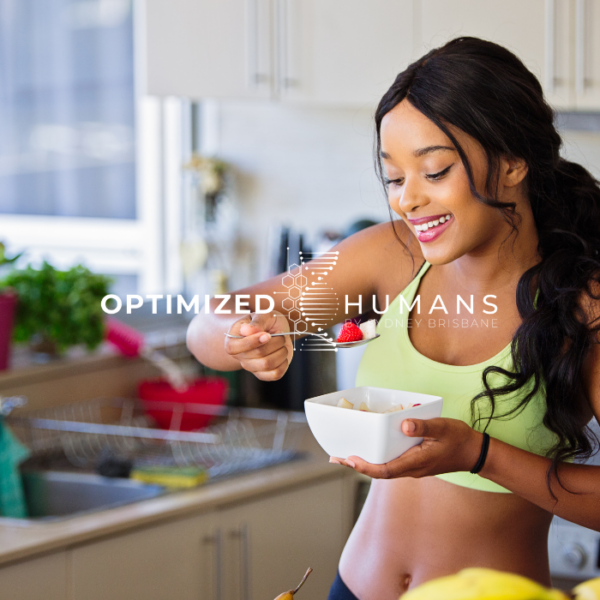
Summer is the perfect time to enjoy fresh, vibrant, and nutritious meals that are both delicious and healthy. The Optimized Humans app offers a plethora of recipes designed to keep you energized and satisfied during the hot months. Here are the top 10 healthy summer recipes you can find in our app, perfect for meals and snacks that celebrate the best of the season.
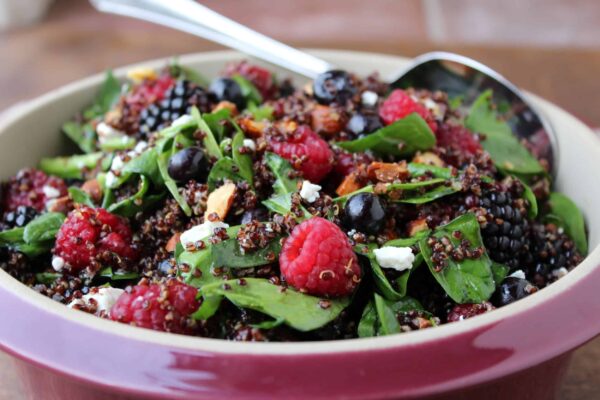
1. Berry Quinoa Salad
Ingredients:
- 1 cup quinoa
- 2 cups water
- 1 cup fresh strawberries, sliced
- 1 cup fresh blueberries
- 1/4 cup chopped fresh mint
- 1/4 cup crumbled feta cheese
- 2 tbsp olive oil
- 1 tbsp balsamic vinegar
- Salt and pepper to taste
Instructions:
- Rinse quinoa under cold water. In a saucepan, bring quinoa and water to a boil. Reduce heat, cover, and simmer for 15 minutes until water is absorbed.
- In a large bowl, combine cooked quinoa, strawberries, blueberries, mint, and feta.
- In a small bowl, whisk together olive oil, balsamic vinegar, salt, and pepper. Pour over salad and toss to combine.

2. Grilled Chicken and Veggie Skewers
Ingredients:
- 2 boneless, skinless chicken breasts, cut into chunks
- 1 red bell pepper, cut into chunks
- 1 yellow bell pepper, cut into chunks
- 1 zucchini, sliced
- 1 red onion, cut into chunks
- 2 tbsp olive oil
- 2 tbsp lemon juice
- 1 tsp dried oregano
- Salt and pepper to taste
Instructions:
- Preheat grill to medium-high heat.
- In a bowl, mix olive oil, lemon juice, oregano, salt, and pepper. Add chicken and veggies, tossing to coat.
- Thread chicken and veggies onto skewers.
- Grill skewers for 10-12 minutes, turning occasionally, until chicken is cooked through and veggies are tender.

3. Watermelon and Feta Salad
Ingredients:
- 4 cups cubed watermelon
- 1/2 cup crumbled feta cheese
- 1/4 cup fresh mint leaves, chopped
- 2 tbsp olive oil
- 1 tbsp balsamic glaze
- Salt and pepper to taste
Instructions:
- In a large bowl, combine watermelon, feta, and mint.
- Drizzle with olive oil and balsamic glaze.
- Season with salt and pepper and toss gently to combine.

4. Avocado and Black Bean Wraps
Ingredients:
- 1 avocado, sliced
- 1 can black beans, drained and rinsed
- 1 cup shredded lettuce
- 1/2 cup cherry tomatoes, halved
- 1/4 cup red onion, thinly sliced
- 4 whole wheat tortillas
- 2 tbsp lime juice
- 2 tbsp chopped cilantro
- Salt and pepper to taste
Instructions:
- In a bowl, mix black beans, lime juice, cilantro, salt, and pepper.
- Lay tortillas flat and layer with lettuce, black bean mixture, avocado, tomatoes, and red onion.
- Roll up tortillas and serve immediately.

5. Greek Yogurt and Berry Parfait
Ingredients:
- 2 cups Greek yogurt
- 1 cup granola
- 1 cup mixed fresh berries (strawberries, blueberries, raspberries)
- 2 tbsp honey
Instructions:
- In a glass or bowl, layer Greek yogurt, granola, and berries.
- Drizzle with honey.
- Repeat layers and serve immediately.
Conclusion
These top 5 healthy summer recipes from the Optimized Humans app are perfect for enjoying the vibrant flavors of the season while keeping your nutrition on track. Download the Optimized Humans app to access these recipes and many more, along with personalized nutrition plans and expert advice to help you stay healthy and fit all summer long. Enjoy the deliciousness of summer and fuel your body with the best nutrients nature has to offer!
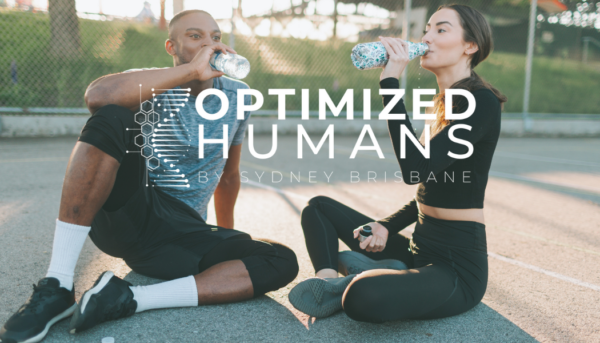
As the summer sun blazes, your workouts might feel more intense, and your body will undoubtedly work harder. Proper post-workout recovery becomes even more crucial during hot weather to ensure your body recovers efficiently and remains injury-free. The Optimized Humans program offers expert advice and resources to help you optimize your recovery. Here are the best practices for post-workout recovery in hot weather, including stretching routines and nutrition tips available in our program.
Hydration is Key
One of the most important aspects of recovery, especially in hot weather, is staying hydrated. Your body loses more fluids through sweat, so replenishing these is essential.
1. Rehydrate Immediately: Drink plenty of water immediately after your workout. Aim for at least 16-24 ounces of water within the first 30 minutes post-exercise.
2. Electrolyte Balance: Consuming drinks with electrolytes can help replenish lost salts and minerals. Consider coconut water or specially formulated electrolyte drinks.
3. Monitor Your Hydration: Check the color of your urine; a pale yellow indicates proper hydration, while darker urine suggests you need to drink more fluids.
Effective Cooling Down
Cooling down helps bring your heart rate back to normal and prevents muscle stiffness. The Optimized Humans program offers guided cool-down routines to ensure you recover properly.
1. Gradual Cool-Down: Spend at least 5-10 minutes walking or performing low-intensity movements to gradually reduce your heart rate.
2. Static Stretching: Incorporate static stretches targeting the major muscle groups you worked during your exercise. Hold each stretch for 20-30 seconds to improve flexibility and reduce muscle tension.
3. Deep Breathing: Practice deep breathing exercises to promote relaxation and aid in the recovery process. This helps lower your heart rate and can reduce post-workout stress.
Stretching Routines for Optimal Recovery
Stretching is a crucial part of the recovery process, especially after intense workouts in hot weather. The Optimized Humans app includes comprehensive stretching routines designed to enhance recovery.
1. Full-Body Stretch Routine: Focus on a full-body stretching routine that targets all major muscle groups. This can help improve flexibility, reduce muscle soreness, and prevent injuries.
2. Yoga and Mobility Work: Incorporate yoga and mobility exercises to enhance your recovery. These practices help improve joint mobility, reduce muscle stiffness, and promote relaxation.
3. Foam Rolling: Use a foam roller to release muscle tension and improve blood flow to your muscles. The app provides guided foam rolling exercises for different muscle groups.
Nutrition for Recovery
What you eat after your workout plays a significant role in your recovery. The Optimized Humans program offers personalized nutrition plans to help you refuel and repair your body.
1. Protein Intake: Consume a protein-rich snack or meal within 30-60 minutes post-workout to support muscle repair and growth. Options include protein shakes, Greek yogurt, or a turkey sandwich.
2. Carbohydrates for Energy: Pair your protein with carbohydrates to replenish glycogen stores and provide energy for recovery. Good options include fruits, whole grains, and vegetables.
3. Healthy Fats: Include healthy fats in your post-workout meal to support overall recovery and reduce inflammation. Avocados, nuts, and olive oil are excellent choices.
4. Antioxidant-Rich Foods: Consume foods rich in antioxidants to combat oxidative stress caused by intense exercise. Berries, leafy greens, and nuts are great options.
Rest and Sleep
Adequate rest and quality sleep are essential for optimal recovery. The Optimized Humans program provides tips and techniques to improve your sleep hygiene.
1. Prioritize Sleep: Aim for 7-9 hours of sleep each night to allow your body to recover fully. Sleep is when your body repairs muscles, consolidates memory, and releases growth hormones.
2. Create a Relaxing Environment: Ensure your sleep environment is cool, dark, and quiet. Consider using blackout curtains, earplugs, or a white noise machine to enhance sleep quality.
3. Consistent Sleep Schedule: Maintain a consistent sleep schedule by going to bed and waking up at the same time each day, even on weekends.
Conclusion
Recovering properly after workouts, especially in hot weather, is essential to maintain your fitness progress and overall well-being. By following these best practices for hydration, cooling down, stretching, nutrition, and rest, you can optimize your recovery and continue to perform at your best. The Optimized Humans program is here to support you with personalized recovery plans, expert advice, and comprehensive resources. Embrace these recovery techniques to stay healthy, energized, and ready for your next workout, no matter how high the temperature rises.
Exclusive Deal For You!
Unlock your potential with a complimentary 14-day trial of our #OptimizedHumans program! 🚀 Dive into customized workouts, expert guidance, and transformative resources designed to enhance your physical and mental well-being. 💪 Join hands with Sydney and our dedicated team to embark on a personalized fitness journey tailored just for you. Together, we’ll optimize your health and set you on the path to success. Plus, discover how we collaborate with companies to boost employee efficiency through tailored workout and nutrition plans. Don’t wait any longer—start your journey to optimal living today at optimizedhumans.life!

June, a month dedicated to unleashing the full potential of our brainpower and igniting awareness for Alzheimer’s disease. As we embark on this journey of enlightenment and advocacy, let’s explore how we can channel our collective energy to raise awareness, support research, and empower those affected by Alzheimer’s. Join us as we delve into actionable strategies to make a difference this Alzheimer’s Awareness Month.
Raising Awareness:
Awareness is the first step towards meaningful change. Spread the word about Alzheimer’s disease and its impact on individuals, families, and communities. Share informative resources, personal stories, and advocacy initiatives on social media platforms, in your local community, and among your networks. By raising awareness, we can shine a light on Alzheimer’s and inspire others to join the fight.
Supporting Research:
Research is the cornerstone of progress in the fight against Alzheimer’s. Get involved in fundraising events, volunteer opportunities, and advocacy campaigns to support organizations dedicated to Alzheimer’s research. Your contributions can fund groundbreaking studies, clinical trials, and innovative treatments that bring us closer to a world without Alzheimer’s.
Empowering Those Affected:
Alzheimer’s affects millions of individuals and their loved ones worldwide. Show your support by offering compassion, understanding, and practical assistance to those living with Alzheimer’s and their caregivers. Volunteer at local memory care facilities, participate in support groups, or simply lend a listening ear to someone in need. Your kindness and empathy can make a world of difference in the lives of those affected by Alzheimer’s.
Taking Action for Change:
Action speaks louder than words. Advocate for policy changes, increased funding for Alzheimer’s research, and improved access to care and support services. Write letters to lawmakers, participate in advocacy events, and engage with advocacy organizations to amplify your voice and drive meaningful change at local, national, and global levels.
As we ignite awareness for Alzheimer’s this June, let’s unleash the full power of our brainpower to make a difference. By raising awareness, supporting research, empowering those affected, and taking action for change, we can create a future where Alzheimer’s no longer robs individuals of their memories and dignity. Together, let’s stand united in the fight against Alzheimer’s and ignite a spark of hope for generations to come.
Thank you for taking this journey with us. Hopefully this has made you more aware of the necessity of good health. If you can make an impact throughout Alzheimer’s and Brain Awareness Month and Maximize Your Human Potential!


